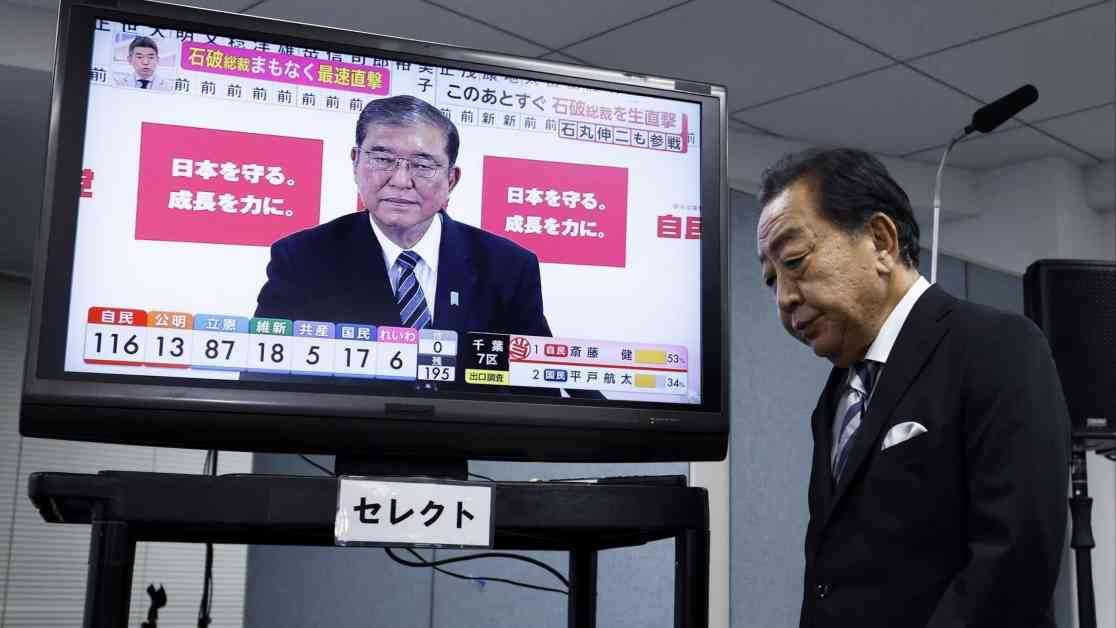Political turmoil has erupted in Japan as voters have punished the ruling Liberal Democratic Party (LDP) in the recent elections. The LDP, which has been in power for many years, is now facing a significant backlash from the electorate.
The LDP’s defeat in the elections comes as a surprise to many political analysts, as the party has traditionally been seen as a dominant force in Japanese politics. However, recent scandals and controversies surrounding the LDP have eroded public trust in the party, leading to a wave of voter dissatisfaction.
The opposition parties in Japan have capitalized on this discontent, gaining ground in the elections and securing key victories in several important constituencies. This shift in power has left the LDP scrambling to regain its footing and address the concerns of the electorate.
In the wake of the election results, political tensions in Japan are running high, with calls for government accountability and transparency growing louder. The LDP now faces the challenging task of rebuilding its reputation and regaining the trust of the Japanese people.
Many voters are expressing frustration with the LDP’s handling of various issues, including the economy, social welfare, and foreign policy. The party’s failure to address these concerns effectively has contributed to its recent electoral defeat and raised questions about its ability to govern effectively in the future.
As Japan navigates this period of political uncertainty, all eyes are on the LDP and its leadership to see how they will respond to the voters’ rebuke. The outcome of the elections has sent shockwaves through the political establishment in Japan, signaling a potential shift in the country’s political landscape.
It remains to be seen how the LDP will address the challenges it now faces and whether it can regain the trust of the Japanese people. The recent elections have highlighted the growing discontent among voters and raised important questions about the future direction of Japanese politics.






















